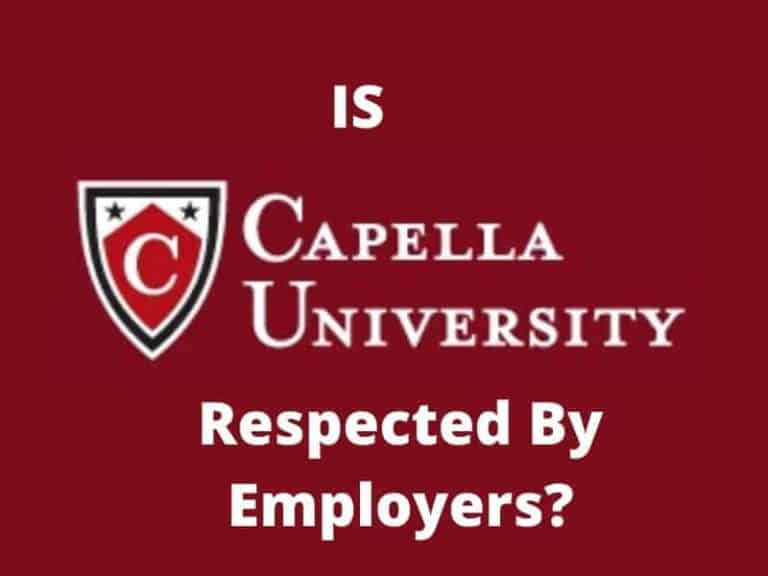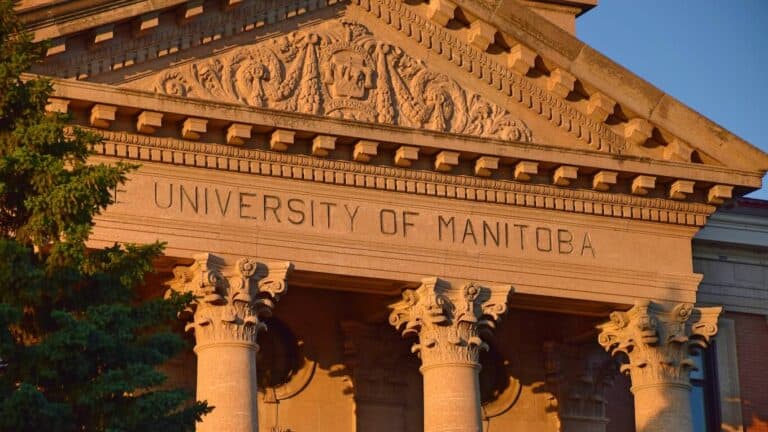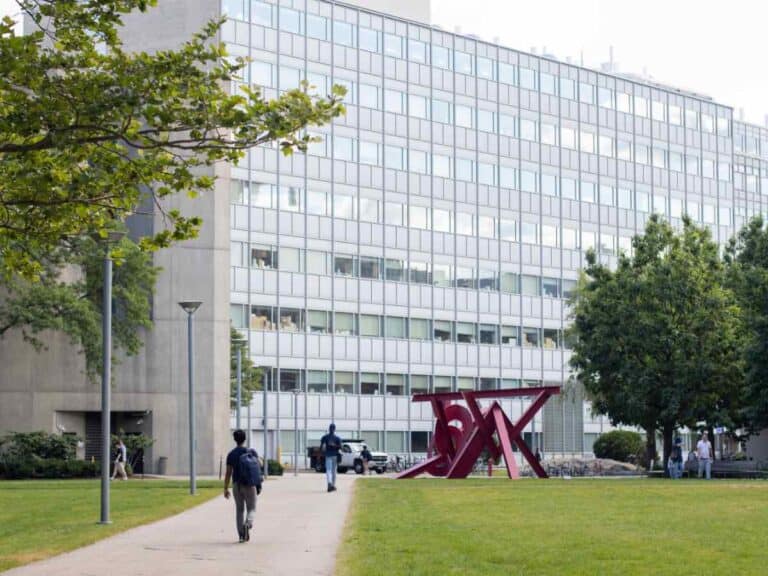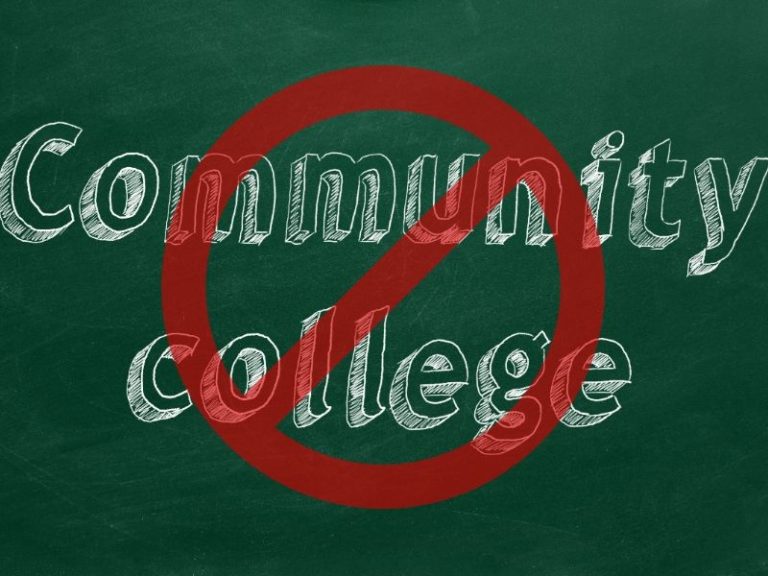Faith-Based Colleges
What’s covered:
Faith-based colleges are institutions of higher education that are affiliated with religious groups as well as incorporate religious values and teachings into their respective curriculum.
While some sectarian schools accept applicants based on religious affiliation, others accept students from all religious backgrounds.
Still confused as to whether or not you should attend a college where your faith is considered?
Below, you will learn about the key differences between religious and non-religious degree-granting schools.
Religious vs Non-Religious Colleges
A number of things separate religious colleges from non-religious ones. In many instances, however, applying to sectarian schools whose religious affiliation has nothing to do with yours may not impact your chances of getting in.
Likewise, attending a faith-based school may not necessarily require you to suppress your belief or change it altogether.
Let’s take a look at some of the main differences between religious and non-religious schools:
Admissions
Religious affiliation or commitment is one of the criteria considered by admissions officers at certain colleges. However, it doesn’t necessarily mean that all faith-based schools take the said factor into consideration.
Whether or not a sectarian college prefers or only admits students from its own religion is on a case-to-case basis. In most instances, though, religious institutions welcome degree-seeking students across various religious backgrounds.
Curriculum
More often than not, faith-based colleges and universities make their respective religious beliefs and values a part of their curriculum. It goes without saying that religious-based courses are mandatory for students to take.
There are cases where a non-sectarian college or even one that’s affiliated with a particular religion offers courses or degrees that have something to do with a different religion — I will mention some examples shortly.
Campus Life
It’s not uncommon for some faith-based postsecondary institutions to make their religious standards and traditions a part of the campus environment, which students are expected to comply with.
However, there are also religious colleges and universities that provide a more inclusive and diverse community where students can exist and interact with each other without any trouble, no matter their religious affiliation.
Colleges Based on Religious Affiliation
Baptist Institutions
There are more than 50 Baptist colleges and universities, and 47 of those are members of the International Association of Baptist Colleges and Universities (IABCU), which is based in Nashville, Tennessee.
Here are some of the top institutions of higher education in the country affiliated with the Baptist church:
- Anderson University
- Arkansas Baptist College
- Averett University
- Baptist College of Florida
- Baptist University of the Americas
- Baylor University
- Belmont University
- Bluefield University
- California Baptist University
- Dallas Baptist University
- East Texas Baptist University
- Eastern University
- Georgetown College
- Grand Canyon University
- Houston Christian University
- Howard Payne University
- Louisiana Christian University
- Mercer University
- Meredith College
- Mississippi College
- Missouri Baptist University
- Oklahoma Baptist University
- Samford University
- Southwest Baptist University
- Stetson University
- Union University
- University of the Cumberlands
- University of Richmond
- Wake Forest University
- Wayland Baptist University
- Williams Baptist College
Catholic Institutions
The Association of Catholic Colleges and Universities (ACCU) says that there are more than 200 Catholic institutions of higher education in the US, the oldest of which is Georgetown University.
Since there are too many of them, we’ll take a look at some of the most highly-ranked ones only:
- Ave Maria University
- Belmont Abbey College
- Benedictine College
- Boston College
- Catholic University of America
- College of Saint Mary
- College of St. Scholastica
- DePaul University
- Fordham University
- Franciscan University of Steubenville
- Georgetown University
- Gonzaga University
- Holy Family University
- John Paul the Great Catholic University
- Loras College
- Loyola Marymount University
- Madonna University
- Manhattan College
- Marquette University
- Marymount University
- Marywood University
- Molloy University
- Niagara University
- Providence College
- Saint Francis University
- Saint Mary-of-the-Woods College
- Salve Regina University
- Santa Clara University
- Seton Hall University
- Siena College
- St. Bonaventure University
- St. Catherine University
- St. John Fisher University
- Stonehill College
- Thomas Aquinas College
- University of Dallas
- University of Dayton
- University of Incarnate Word
- University of Mary
- University of Notre Dame
- University of Portland
- University of San Diego
- University of St. Thomas
- Villanova University
- Walsh University
Islamic Institutions
There are more than 140 accredited Islamic schools in the US, according to the Saudi Arabian Cultural Mission (SACM).
Only a very few handful of them, however, are degree-granting institutions.
Here are some of the top Islamic colleges and universities in the US.
- American Islamic College
- Cordoba University
- Institute of Islamic and Arabic Sciences in America
- Islamic American University
- Islamic University of Minnesota
- Respect Graduate School
- Zaytuna College
It’s worth pointing out, though, that many non-Islamic schools have Islamic courses and degrees, including:
- California State University, San Bernardino
- Columbia University
- DePaul University
- Emory University
- George Washington University
- New York University
- Ohio State University
- University of Arizona
- University of California, Los Angeles
- University of Michigan – Ann Arbor
- University of Virginia
Jesuit Institutions
There are nearly 30 Jesuit postsecondary institutions located in a total of 17 states in the US, according to the Association of Jesuit Colleges and Universities (AJCU).
It adds that some 189 of them exist across the globe.
Below are some of the colleges that are affiliated with the Jesuit order of the Roman Catholic Church:
- Boston College
- Canisius College
- College of the Holy Cross
- Creighton University
- Fairfield University
- Fordham University
- Georgetown University
- Gonzaga University
- John Carroll University
- Le Moyne College
- Loyola Marymount University
- Loyola University Chicago
- Loyola University Maryland
- Loyola University New Orleans
- Marquette University
- Regis University
- Rockhurst University
- Saint Joseph’s University
- Saint Louis University
- Saint Peter’s University
- Santa Clara University
- Seattle University
- Spring Hill College
- University of Detroit Mercy
- University of San Francisco
- University of Scranton
- Xavier University
Jewish Institutions
A number of Jewish colleges and universities in the US exist.
There are non-Jewish schools, too, that enroll lots of Jewish students, and leading the list among all public universities is the University of Florida: nearly 20% of its population is Jewish.
The following are some of the most highly-ranked Jewish institutions in the country:
- Beis Medrash Heichal Dovid
- Bnos Zion of Bobov Seminary
- Central Yeshiva Tomchei Tmimim Lubavitz
- Jewish Theological Seminary
- Ner Israel Rabbinical College
- Rabbinical Academy Mesivta Rabbi Chaim Berlin
- Rabbinical College Bobover Yeshiva Bnei Zion
- Rabbinical College of Ohr Shimon Yisroel
- Rabbinical College Ohr Yisroel
- Rabbinical Seminary of America
- Seminary Bnos Chaim
- Talmudical Seminary of Bobov
- Talmudical Seminary Oholei Torah
- Talmudical Yeshiva of Philadelphia
- Yeshiva of Machzikai Hadas
- Yeshiva Gedola Keren Hatorah
- Yeshiva Gedola Tiferes Yerachmiel
- Yeshiva University
- Yeshivath Viznitz
- United Talmudical Seminary
Methodist Institutions
Nearly 120 Methodist postsecondary institutions in the US are members of the North American Association of Methodist Schools, Colleges, and Universities (NAAMSCU) — there are many other Methodist schools not affiliated with it.
Let’s take a look at some of the most well-known Methodist colleges and universities in the land:
- Alaska Pacific University
- Albion College
- Allegheny College
- American University
- Baker University
- Boston University
- Central Methodist University
- Clark Atlanta University
- Cornell College
- DePauw University
- Dickinson College
- Duke University
- Emory University
- Greensboro College
- Illinois Wesleyan University
- Kendall College
- Martin Methodist College
- Methodist University
- Millsaps College
- Nebraska Methodist College
- North Carolina Wesleyan College
- North Central College
- Northwestern University
- Ohio Northern University
- Ohio Wesleyan University
- Rocky Mountain College
- Southern Methodist University
- Syracuse University
- Tennessee Wesleyan College
- Texas Wesleyan University
- Virginia Wesleyan University
- Wesleyan College
- Wiley College
- Willamette University
- University of Denver
- University of Indianapolis
- University of the Pacific
Presbyterian Institutions
In the US, more than 50 colleges and universities are associated with the Presbyterian faith, many of which are members of the Association of Presbyterian Colleges and Universities (APCU), which serves 140,000 plus students.
Some of the most popular Presbyterian-affiliated institutions in the US include the following:
- Agnes Scott College
- Austin College
- Belhaven University
- Blackburn College
- Bloomfield College
- Buena Vista University
- Carroll University
- Centre College
- College of the Ozarks
- Covenant College
- Davidson College
- Eckerd College
- Hanover College
- Illinois College
- King University
- Knoxville College
- Lafayette College
- Lake Forest College
- Lindenwood University
- Lyon College
- Macalester College
- Mary Baldwin University
- Presbyterian College
- Rhodes College
- Schreiner University
- St. Andrews University
- Sterling College
- Trinity University
- University of Jamestown
- University of Pikeville
- University of the Ozarks
- University of Tulsa
- Waynesburg University
- Westminster College
- Whitworth University
Disclaimer: The views and opinions expressed in this article are those of the authors and do not necessarily represent those of the College Reality Check.





